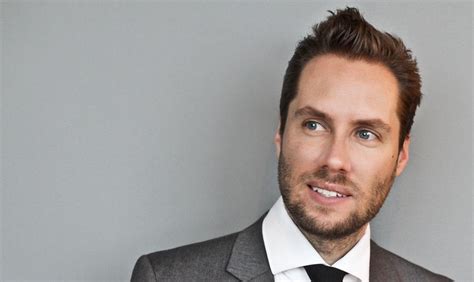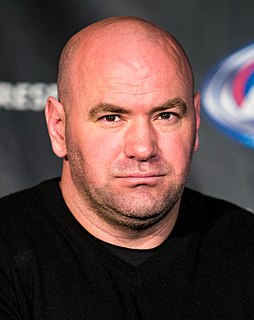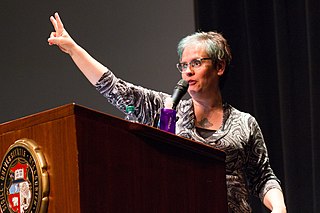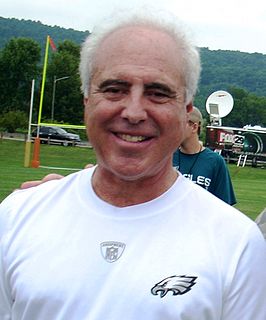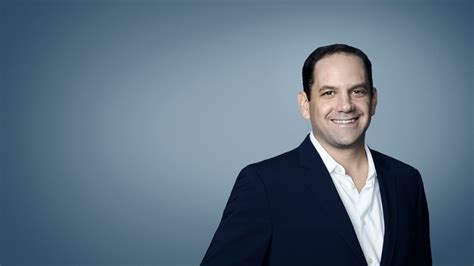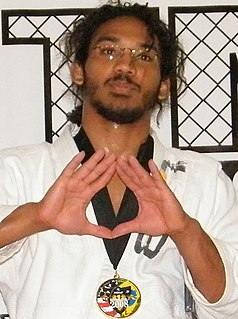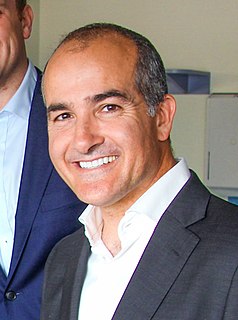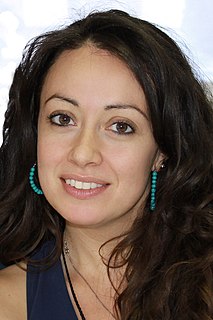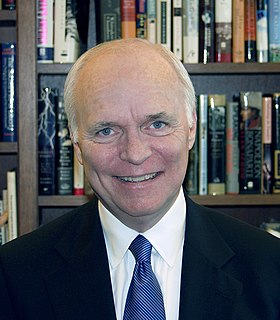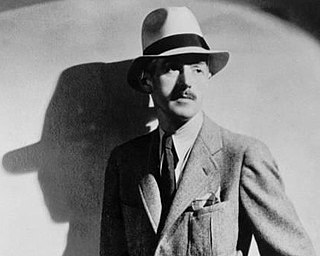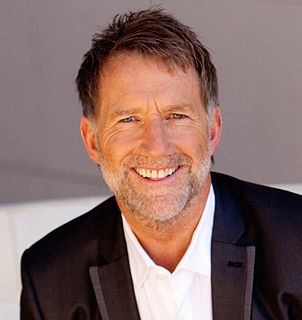Top 1200 Good Organization Quotes & Sayings - Page 5
Explore popular Good Organization quotes.
Last updated on December 22, 2024.
La Raza stands for 'The Race' - and they say so openly. They are a pro-Hispanic organization; I will call them a racist organization. They base their philosophy on race. They advocate for those minorities that fit within the category that they define as drives them. They are apologists for illegal immigrants - and we are funding them with your tax dollars in this administration through earmarks. It is outrageous. It's an in-your-face act on the part of this Congress.
Suicide is a form of murder - premeditated murder. It isn't something you do the first time you think of doing it. It takes getting used to. And you need the means, the opportunity, the motive. A successful suicide demands good organization and a cool head, both of which are usually incompatible with the suicidal state of mind.
The Jesuits are a MILITARY organization, not a religious order. Their chief is a general of an army, not the mere father abbot of a monastery. And the aim of this organization is power - power in its most despotic exercise - absolute power, universal power, power to control the world by the volition of a single man. Jesuitism is the most absolute of despotisms - and at the same time the greatest and most enormous of abuses.
Not everyone in an organization is in a position to accumulate power through competent performance because most people are just carrying out the ordinary and the expected - even if they do it very well. The extent to which a job is routinized fails to give an advantage to anyone doing it because 'success' is seen as inherent in the very establishment of the position and the organization surrounding it. Neither persons nor organizations get 'credit' for doing the mandatory or the expected.
Malcolm X broke with the N.O.I. in March 1964, and in that last 11 chaotic months, he spent most of the time outside of the United States. Nevertheless, he built two organizations in the spring of 1964. First, Muslim Mosque Incorporated, which was a religious organization that was largely based on members of the N.O.I. who left with him. It was spearheaded by James 67X or James Shabazz, who was his chief of staff. Then secondly was the Organization of Afro-American Unity.
I asked myself, 'How are you going to change all these people, they have different values, different customs, different language, different interpretations?' So that’s the time I joined the Ku Klux Klan in Miami. The reason I joined is to see if I could change them. So I dissolved that organization in a month-and-a-half, alone. [Applause] Then I joined the White Citizen Council. The WCC hates foreigners – all foreigners. So I joined that organization; I dissolved it in one month.
Nothing motivates like success. While academics, consultants and gurus are preoccupied with coming up with great insights and seminal ideas, usually they don't realize that making things happen, achieving operational excellence, moving the organization from uncertainty to clarity, from red ink to black, is what really creates hope for a better future. Therefore, great leadership always involves great ideas and real actions that reinforce a strong belief in the excellence of the decision makers and in the viability of the organization itself.
Anarchism asserts the possibility of an organization without discipline, fear, or punishment, and without the pressure of poverty: a new social organism which will make an end to the terrible struggle for the means of existence, --the savage struggle which undermines the finest qualities in man, and ever widens the social abyss. In short, Anarchism strives towards a social organization which will establish well-being for all.
Belonging to the Catholic Church gives your support to an organization that conceals and protects child rapists. Again, not as a few isolated incidents, but as a massive, institution-wide culture, a matter of policy even, that extends throughout the organization and reaches all the way to the top. Belonging to the Catholic Church - giving them money, letting them count you in their rolls, sending your children to their schools - gives this behavior your personal thumbs-up, and actively enables it to continue.
As an owner, you have a choice. Do you want to adopt a vision that you think is real sharp and real cutting edge and could get you from good to great - has a chance - or do you want to just say the organization is not about that, and we're not going to try to adopt a new coaching philosophy and vision.
CNN is the only organization with both a 24/7 TV network AND a powerhouse digital product. Rachel Smolkin, executive editor of CNN Digital Politics, has put together a Murderer's Row of talent and the midterms are really their debut. When you combine that effort with the footprint we have in the field and the depth of talent and experience of our anchors, analysts and beat reporters, I don't think there is another organization on the planet that can cover elections the way CNN can.
The fact that you are here tonight gathered together with us testifies to the fact you understand the need for this organization and the need for redoubling our efforts in this organization to try to assure that democracy as represented by the United States must depend upon a total freedom of religion, which is written into our Constitution, of course, and the mere suggestion that anyone could maintain that one's patriotism, one's devotion to one's country can be judged by one's religion is so vile, so vile that we have to take to the streets indeed and to put it aside.
First there's my role just as an executive being responsible for advertising, regardless of gender. I think that's a position that I take seriously. That's the first role. But I think for my role as a woman at Google, you try to set a good example and be a role model for the other women in the organization.
We're not like a nostalgia act, or the normal classic rock act - we're a really good musical organization, ... You're going to hear some blues, some jazz, a little of everything. The guys in the band are great musicians. When we play, we're there for real. It's not about posing, strutting in tights, that kind of stuff. It's all about music, and I've always respected my audience that way.
It is management's job to direct the efforts of all components toward the aim of the system. The first step is clarification: everyone in the organization must understand the aim of the system, and how to direct his efforts toward it. Everyone must understand the damage and loss to the whole organization from a team that seeks to become a selfish, independent, profit center.
Leaders who understand the importance of the intangible elements contributing to workplace culture become sensitive to what makes their organization truly special. That is how they define core values and beliefs that are unique, simple, leader-led, repetitive, and embedded - transforming themselves from good to exceptional.
In studying language we can discover many basic properties of this cognitive structure, its organization, and also the genetic predispositions that provide the foundation for its development. So in this respect, linguistics, first of all, tries to characterize a major feature of human cognitive organization. And second, I think it may provide a suggestive model for the study of other cognitive systems. And the collection of these systems is one aspect of human nature.
Maybe Bellator would not be a great fit for this guy but would be for this guy. Maybe the UFC is a better call for this guy, but then Bellator is better for that guy. I don't think you can make a blanket statement and say that this organization is great for everybody compared to this organization. Take it case by case.
So I have just one wish for you – the good luck to be somewhere where you are free to maintain the kind of integrity I have described, and where you do not feel forced by a need to maintain your position in the organization, or financial support, or so on, to lose your integrity. May you have that freedom.
There are some terrific resources on how to find individual purpose but relative resources on how to discover purpose and apply to an organization. My challenge was to show organizations how they could unlock the purpose of their organizations and put it to good use for employees to apply to their own jobs. The net effect is to help individuals, teams and organizations to optimize performance by understanding how to use purpose for good intention.
Talking about improving the culture, I prefer to say "develop" or "evolve" rather than "change". If I walk into a room and say: "we are here to change the organization," it sends shock waves through the group. If I say: "your success to date has come from who you are, to be successful in the future, we need to get to X, let's talk about how we evolve the organization to that point," that is a very different statement. Successful organizational "change" must come from the people. So, recruit them with common purpose, recognize that it will take time, and plow forward.
The Organization of Afro-American Unity was an organization that was a secular group. It largely consisted of people that we would later call several years later Black Powerites, Black nationalists, progressives coming out of the Black freedom struggle, the northern students' movement, people - students, young people, professionals, workers, who were dedicated to Black activism and militancy, but outside of the context of Islam.
I used to work for a non-profit organization where I worked as a mentor and a counselor to first-generation college student and they kept asking me 'What can I read to try to know what I'm about to be in for,' and while I did have some good suggestions, I figured... I don't know that that book is out there, and that's sort of why I had to write it.
But we assure the socialists that we repudiate only forced organization, not natural organization. We repudiate the forms of association that are forced upon us, not free association. We repudiate forced fraternity, not true fraternity. We repudiate the artificial unity that does nothing more than deprive persons of individual responsibility. We do not repudiate the natural unity of mankind under Providence.
It's kind of the period of your career where as a fighter, you need some sort of validation from time to time. I mean, winning matches and going off to the next one, without really having any direction, it's fun, but it's good to have a period where you can say "Ok, I won a title. Ok, I got picked up by a big organization." So every step in there is important.
The fact is, some of the most respected scientific bodies in the world, including Codex Alimentarius (jointly run by the World Health Organization and the Food and Agricultural Organization of the United Nations), the American Medical Association, the British Medical Association, and the American Public Health Association, have stated that more research needs to be done on GMOs through premarket safety assessments before we can truthfully determine their safety.
When I heard your organization was recording testimonies, I knew I had to come. She died in my arms, saying 'I don't want to die.' That is what death is like. It doesn't matter what uniforms the soldiers are wearing. It doesn't matter how good the weapons are. I thought if everyone could see what I saw, we would never have war anymore.
All Pro Dad is an organization that started down in Tampa in 1997. And it was just a group of us who felt like we weren't doing as good a job as our fathers did in connecting with kids and being there and being involved in their lives, working and coaching and spending all the time we had to. We just felt badly.
A lot of association on the internet is highly constructive. There are people interacting, interchanging ideas, making plans, coordinating activities; take any of the popular movements, a lot of the organization is through the internet. We want to have a demonstration or we want to have a meeting, its done through the internet. I think that's all to the good.
We all have known good critics, who have stamped out poet's hopes; Good statesmen, who pulled ruin on the state; Good patriots, who, for a theory, risked a cause; Good kings, who disemboweled for a tax; Good Popes, who brought all good to jeopardy; Good Christians, who sat still in easy-chairs; And damned the general world for standing up. Now, may the good God pardon all good men!
When a man's partner is killed he's supposed to do something about it. It doesn't make any difference what you thought of him. He was your partner and you're supposed to do something about it. Then it happens we were in the detective business. Well, when one of your organization gets killed it's bad business to let the killer get away with it. It's bad all around-bad for that one organization, bad for every detective everywhere. Sam Spade
To put it another way, I believe that purpose and principle, clearly understood and articulated, and commonly shared, are the genetic code of any healthy organization. To the degree that you hold purpose and principles in common among you, you can dispense with command and control. People will know how to behave in accordance with them, and they'll do it in thousands of unimaginable, creative ways. The organization will become a vital, living set of beliefs.
We are being made aware that the organization of society on the principle of private profit, as well as public destruction, is leading both to the deformation of humanity by unregulated industrialism, and to the exhaustion of natural resources, and that a good deal of our material progress is a progress for which succeeding generations may have to pay dearly.
You are not saintly (a good person) because an organization says so, but rather because you stay connected to the divinity of your origination. You are not intelligent because of a transcript; you are intelligence itself, which needs no external confirmation. You are not moral because you obey the laws; you are mortality itself because you are the same as what you came from.
Somehow ungodly men have developed systems of organization which permit them to work together in states of relative harmony and unity, whereas godly men, refusing to admit that these organizational structures are needed, live in states of chaos and disunity. The tragedy of this fact becomes evident when we realize that many of the successful systems of organization under which the godly men work and which the godly men refuse to accept are biblically based.
Until I came to IBM, I probably would have told you that culture was just one among several important elements in any organization's makeup and success - along with vision, strategy, marketing, financials, and the like... I came to see, in my time at IBM, that culture isn't just one aspect of the game, it is the game. In the end, an organization is nothing more than the collective capacity of its people to create value.
Some [people] think that there is a central organization responsible for all the institutions they wrongly think affiliated with me. They ignore the zeal of many to serve humanity and to gain God's good pleasure in doing so. They ignore people's generosity. Such misunderstandings may lead others to have suspicions about the financial resources of the schools.
I have been working with the World Health Organization since 1989 in an effort to redefine approaches to contraceptive introduction. This has given me the opportunity to insist that strategies for research and policy development must simultaneously address people's needs, the capacity of programs to provide good quality of care, and the range of technological options available.
It is said if an organization listens to the complaint of a customer and the problem is fixed, the customer remains a loyal customer and tells approximately seven others about the experience. Conversely, if a person is ignored and the problem not fixed, that customer will not deal with that organization anymore and will tell approximately twenty other people about the negative experience.
In my movie, "Death By China," it shows Bill Clinton in 2000 promising that when China got into the World Trade Organization we would be making products here and selling them there, and life would be great. Just the opposite has happened. And here's why this has been so devastating - China went into the World Trade Organization and agreed to play by certain rules. Instead, it's violated these rules. For 15 years, it continues to illegally subsidize its exports.
We started an organization that's the only sub-organization of the MacArthur Foundation and we are called the Macarturos. Usually when I win something, I'm the only one of my ethnicity to get it, but this time I met all these Latinos, and I was so excited. I'd meet someone and I'd go, [...] "Can you come to San Antonio?" And they'd go, "Oh yeah." [...] And suddenly I had twelve people that said they would come. And I didn't know how it was going to be. And that's how the Macarturos became a reality, where these very generous geniuses come to San Antonio and work together.
No matter the organization, the goal, or the mission, you've got to do it through people. It's been that way for me since my first command. I work to understand the people, their views and needs, and how tasks are being carried out.That interaction might cause me to modify my guidance or the way I delegate. It also affords me an opportunity to learn what goals people have and how as their boss I can facilitate their future in ways that not only help them, but also help the ship or the organization.
The Bay Area has become my second home since I arrived here in 2007 and I can't accurately describe how good it feels to be wanted and appreciated by an organization. The Warriors - from Chris Cohan, Robert Rowell, Chris Mullin and Coach Nelson to the last person working in the front office - have embraced me since Day One.
